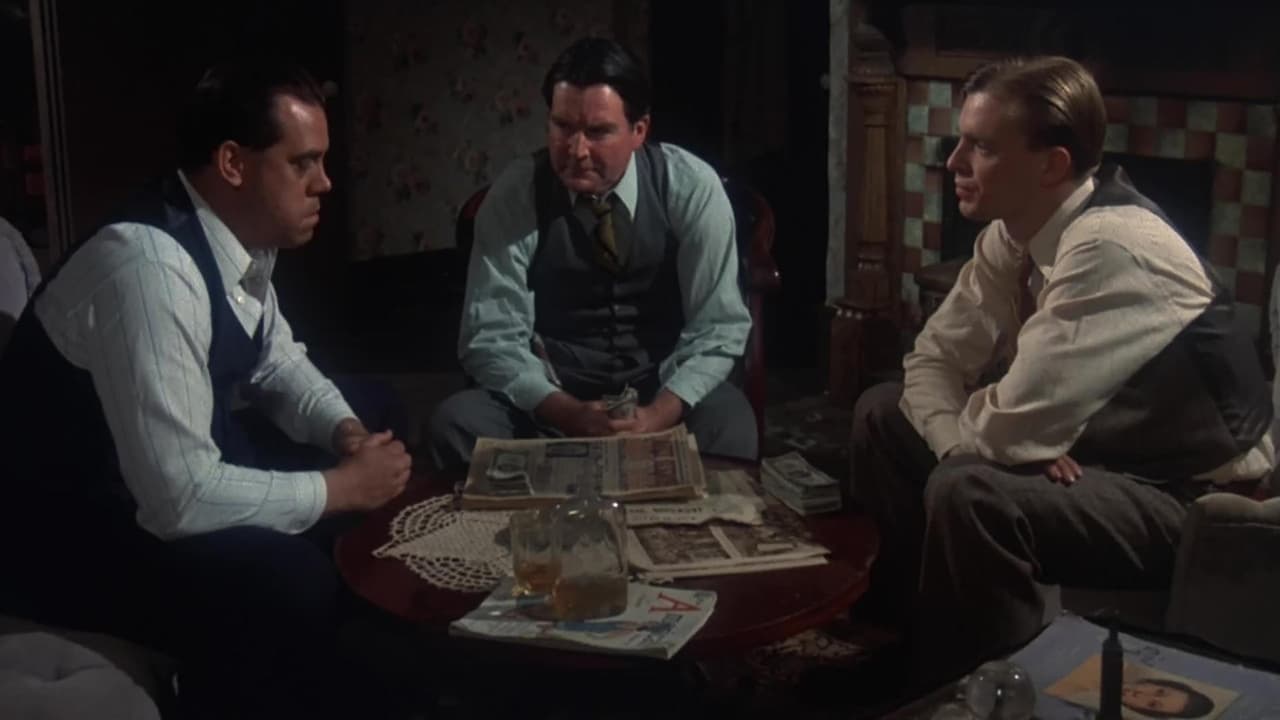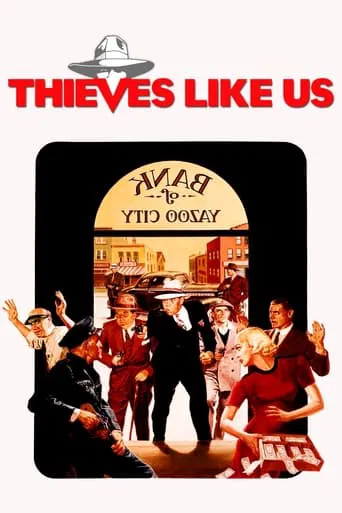

After "McCabe and Mrs. Miller", film director Robert Altman returns to the period piece with this superb character study, the second film adaptation (after Nicholas Ray's 1949 "They Live by Night") of a story by Edward Anderson. In Depression era Mississippi, a trio of criminals - Bowie (Keith Carradine), Chicamaw (John Schuck), and T-Dub (Bert Remsen) - escape from prison and hole up temporarily in a farmhouse where Bowie makes the acquaintance of Keechie (Shelley Duvall), with whom he falls in love. While there are bursts of violence throughout, this is much more character than action oriented, with leisurely pacing by Altman that allows the convincing atmosphere to really take hold. The period recreation is stunning, from costumes to sets to cars, and helps the viewer to become really involved in the story, and the people on screen, who each have their own flaws and ambitions. One will notice that Altman goes for an unconventional choice of soundtrack here, as instead of a score he uses old radio programs to enhance scenes; programs like "The Shadow" are used for more serious scenes while a production of "Romeo & Juliet" can be heard over a lovemaking scene. This, more than anything, transports the viewer back in time, doing a better job than most any music score could. Sometimes funny, and sometimes shocking, "Thieves Like Us" is best when it gives its well chosen cast opportunities to really strut their stuff. They couldn't be better; Carradine has one of his best ever roles as Bowie, who's engaging whether he's sharing a scene with Keechie or a stray dog he's befriended. Schuck is vivid as the explosive, alcoholic Chicamaw, and the late Remsen is a delight as the cheerful T-Dub. These two are under rated performers whose names deserve a mention a little more often. Louise Fletcher has her first substantial film role as the tough, no-nonsense Mattie, Ann Latham is appealing as Lula, and Tom Skerritt contributes a scene stealing turn as the cantankerous Dee Mobley. This is one of those movies best appreciated by those who don't need a car chase or other kind of action scene every few minutes in their criminals-on-the-lam pictures. It really cares about character, ambiance, and nuance, and is about as good as this kind of thing gets, maintaining interest for a compelling 123 minutes of screen time. While watching, the viewer will be amused to note the fairly big part that product placement plays here, as the drinking of Coca Cola becomes a recurring theme. Eight out of 10.
... View MoreSeveral days ago I selected a book by Edward Anderson and read through it. It was so interesting, I borrowed the movie directed by Robert Altman and called " Thieves Like Us " starring Keith Carradine who plays Bowie. The film mirrored the book in many ways, but somehow lacked it's heart. The movie itself tells the exciting, but doomed love story of escaping convicts who form a Bank robbing group who's initial success offers the opportunity to flee to Mexico. Failing to take advantage of their bank robbing efforts, T-Dub (Bert Remsen), Chicamaw, (John Schuck) Dee Mobley (Tom Skerritt) and Bowie travel about the state of Mississippi robbing other banks, until an innocent employee is killed which escalates their F.B.I criminal status to wanted Murderers. Despite running from the police, Bowie falls for Keechie (Shelley Duvall) a naive farm girl who dreams of a better life. The characters in the group lack the romantic flair, familiarity or likability of other films like Bonnie and Clyde, but are interesting non-the-less. The cast also includes Louise Fletcher as Mattie. Despite it's roaring car chase scenes and shoot-em-up action, the movie fails to deliver the adventure quality of the novel. ****
... View MoreA gentle, slow, and moving study of some none-too-bright bank robbers in the 1930s. Keith Carradine and Shelly Duvall are terrific, and their scenes together are alive and wonderful. Some of the surrounding acting and story lines are good, but not nearly as strong as the film's center. Beautiful production design, and a feeling, as with 'McCabe and Mrs. Miller', of both tremendous reality, of 'being there', while still somehow feeling Brechtian and ironic at the same time. There are moments where the radio music in the background -- used in place of score - is a bit on the nose, and a few moments feel forced or slow. But this is a unique, odd and special movie, examining thieves in the depression without any hint of glamorization on one hand, or forced empathy on the other, while still breaking our hearts.
... View MoreWhen altman chooses to not show t-dub getting killed, rather reveal it to bowie the same time he reveals it to us in a news broadcast, i thought it was a very strange choice, but also an appropriate one. most of the action in this movie is in radio broadcasts and newspapers, with very only two full robberies. I sometimes have problems watching the 70's altman stuff only because the sound recording technologies didn't really match up to his vision, and frequently things are too muddled to understand more than one or two words(IE the rainstorm.) That was a pretty terrible fake rainstorm, either that or the copy of the film we screened was damaged. I liked it more than bonnie and Clyde, mostly because it was more subdued, less flashy, more subtle, more about friendship and consequences.it was good. real good.they oughta put it on a DVD.
... View More